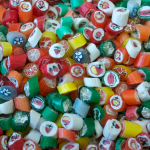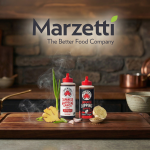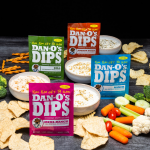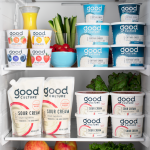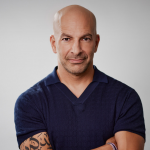Happi Foodi Brings In New Investor To Help Scale Operations Bring Accessible Food Worldwide

They began as a seafood company and a waffle company, respectively, but today, Japanese food conglomerate Maruha Nichiro and U.S.-based frozen food maker Happi Foodi find themselves playing on common ground.
Maruha Nichiro announced last week it has invested an undisclosed sum into Happi Foodi’s business with the stated aim of bringing the better-for-you, keto-focused frozen food brand into new “foreign markets.” The move represents an opportunity for the company, one of Japan’s leading frozen food distributors, to easily integrate a new brand with established tenants into its core business, said a spokesperson from its execution team. While Happi Foodi’s portfolio will help amplify its existing reach, the brand will primarily be used to break into new markets and further Maruha’s presence globally.
“Maruha Nichiro has positioned the establishment of a sales network worldwide as an important growth strategy for the future,” said a company spokesperson. “We have made this investment based on our strategy, focused on an alliance with a local partner who has marketing, planning, and development capabilities as well as a sales network that captures cutting-edge trends related to food in the region.”
For Happi Foodi, the partnership is a step forward in its goal of widening accessibility to healthy, convenient foods. The two teams established a very “synergistic relationship,” according to Sam Rockwell, co-founder and CEO of Happi Foodi, who also highlighted Maruha’s century’s worth of experience in the food industry, specifically in operations, supply chain management and R&D, as being an integral part of Happi Foodi’s continued growth.
“[Maruha] tends to be more methodical, but they are a large conglomerate,” said Rockwell. “They bring a degree of stability and infrastructure, and we still bring this speed and agility and when you bring those two things together… I think we’re able to create this long term sustainable growth while identifying areas in the market that have not been pursued.”
Although Maruha’s brand statement is “For the ocean, for life,” the company produces and sells a broad spectrum of products from nursing care to cosmetics to canned tuna, with operations that span from ingredient sourcing to processing and distribution. According to the company, it is also one of the leading frozen food players in Japan, offering a range of ready-to-eat meals. Investing in Happi Foodi provides an opportunity for Maruha to apply its current operations to a new brand and quickly leverage this product portfolio into wider distribution.
What’s next?
Happi Foodi and Maruha both say they seeks to also develop new products alongside one another and, for Rockwell, to “continue to fill the whitespace.” Happi Foodi aims to also use this investment to look back on its own operations and streamline the processes of its four year old brand. That process may already be underway as the brand has suspended online ordering through its own DTC platform.
“How can we navigate the quite frankly very challenging logistics world and supply chain world that has crept up on us to save pennies and time,” said Rockwell. “Those are two things that become very, very important on the back end of our consumer products. [Maruha’s] yesterday’s being our tomorrow’s will help us to better avoid the blockades, speed bumps and cliffs.”
For Rockwell, the whitespace is not necessarily a specific product or category, but rather increasing accessibility to better-for-you, chef-inspired, convenient meals. He believes refining the company’s current operations to be more efficient will be one of the largest opportunities to make this mission a reality.
Maruha itself has a previous interest in food with a deeper purpose. The corporation has prioritized upcycling 99% of the waste created during its food processing operations into new food products. It claims to have been pioneers in the space in the 2000s when it began repurposing waste from its seafood business, like heads, bones, organs, and shells, into seafood extract which is used as a nitrogen source during manufacturing across a wide range of industries.
The company said it is continuing to entertain new partnerships and is open to expanding its relationship with Happi Foodi depending on the short term success of the partnership.
“Maruha Nichiro will continue to work on co-creation with entrepreneurs and start-up companies who have high aspirations and technologies without limiting ourselves to our existing business areas,” said a spokesperson. “By accelerating the exploration of innovation that is not bound by traditional frameworks, we will achieve sustainable growth for both the Maruha Nichiro Group and society.”


